| Author |
 Topic Topic  |
|
|
Xavier
Scientific Collaborator
    
France
12547 Posts |
 Posted - 02/12/2014 : 09:14:03 Posted - 02/12/2014 : 09:14:03



|
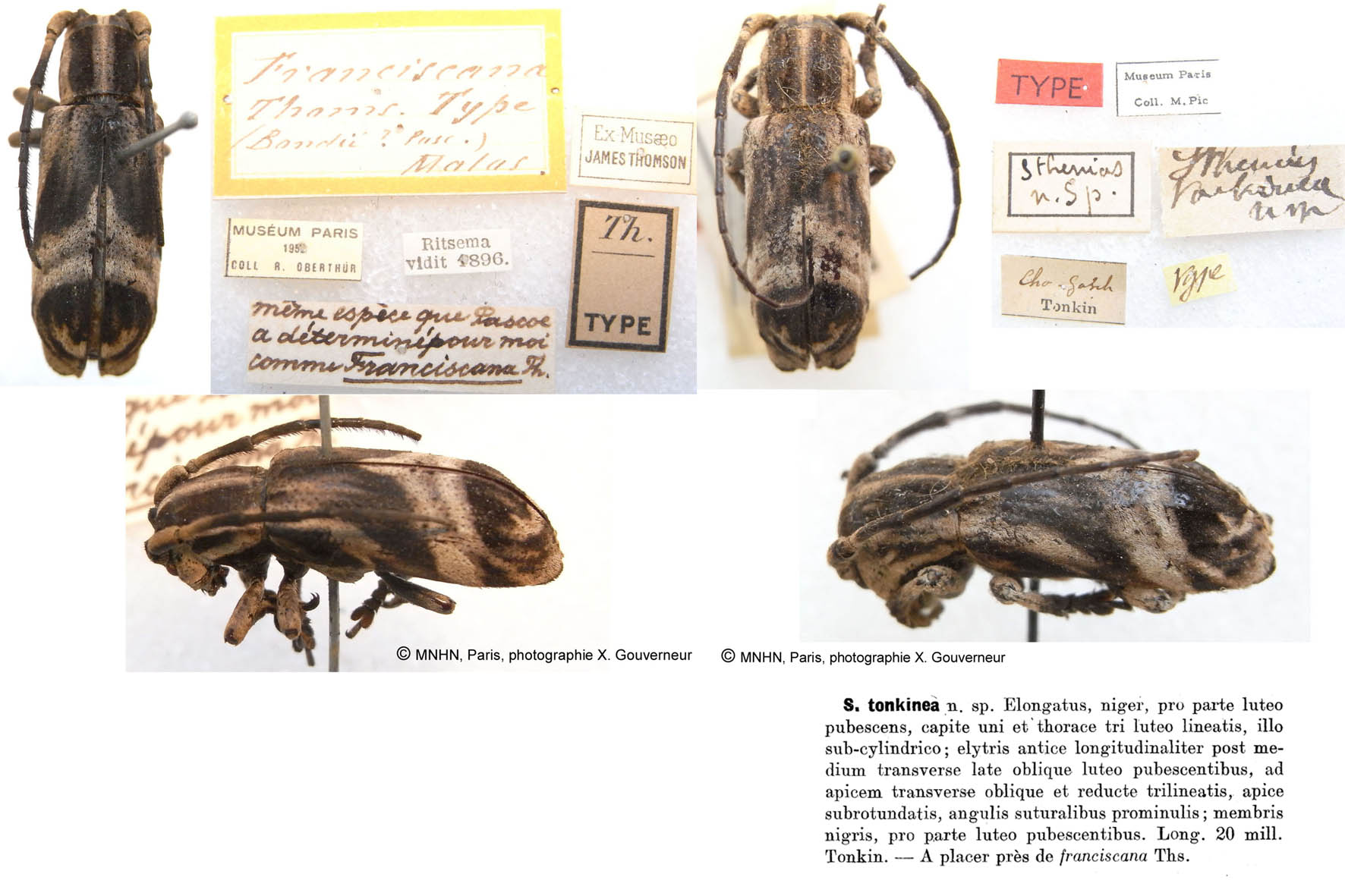
Holotype de Sthenias franciscana Thomson, 1865 / Holotype de Sthenias tonkinea Pic, 1925 et description originale.
Quelles sont les véritables différences entre ces deux "types" ?
Pour avancer sur ce sujet, il faudrait trouver la description de Sthenias franciscana Thomson, 1865 : THOMSON James, 1865. Diagnoses d'espèces nouvelles qui seront décrites dans l'appendix du systema cerambycidarum. Mémoires de la Société Royale des Sciences de Liège 19: 541-578. |
Edited by - Xavier on 02/12/2014 09:20:51 |
|
|
Xavier
Scientific Collaborator
    
France
12547 Posts |
 Posted - 02/12/2014 : 09:18:42 Posted - 02/12/2014 : 09:18:42



|
Autre piste : comment Breuning sépare-t-il ces deux espèces dans sa révision des Pteropliini (malheureusement pour moi en langue allemande  ) ?? ) ??
Je vais comparer des deux spécimens sous la loupe au MNHN en décembre. |
Edited by - Xavier on 02/12/2014 09:24:10 |
 |
|
|
Pierre
Member Rosenbergia
   
Switzerland
1806 Posts |
 Posted - 03/12/2014 : 07:06:23 Posted - 03/12/2014 : 07:06:23



|
| Xavier, t'as qu'à me donner le texte de Breuning et je te résume les choses. |
 |
|
|
Xavier
Scientific Collaborator
    
France
12547 Posts |
 Posted - 03/12/2014 : 13:19:03 Posted - 03/12/2014 : 13:19:03



|
 merci Pierre, je découpe-colle les textes et te les envoie.. merci Pierre, je découpe-colle les textes et te les envoie.. |
 |
|
|
Francesco
Forum Admin
    
Luxembourg
9653 Posts |
 Posted - 18/11/2018 : 18:01:42 Posted - 18/11/2018 : 18:01:42




|
| La ponctuation du pronotum: dense (tonkineus), éparse (franciscanus). |
 |
|
|
Xavier
Scientific Collaborator
    
France
12547 Posts |
 Posted - 18/11/2018 : 21:57:42 Posted - 18/11/2018 : 21:57:42



|
Excellente information !!!  |
 |
|
|
Xaurus
Member Macrodontia
    
Germany
2007 Posts |
 Posted - 18/11/2018 : 23:53:25 Posted - 18/11/2018 : 23:53:25



|
I found a pictures from Holzschuh's coll. (made by Y. Yamasako maybe ?) and I put both sps together, really difficult to see any good differentations for the moment, maybe the length of the antennae are different, but it could be, all the upper spms are females and the spms below are males, I cannot decides by picture.
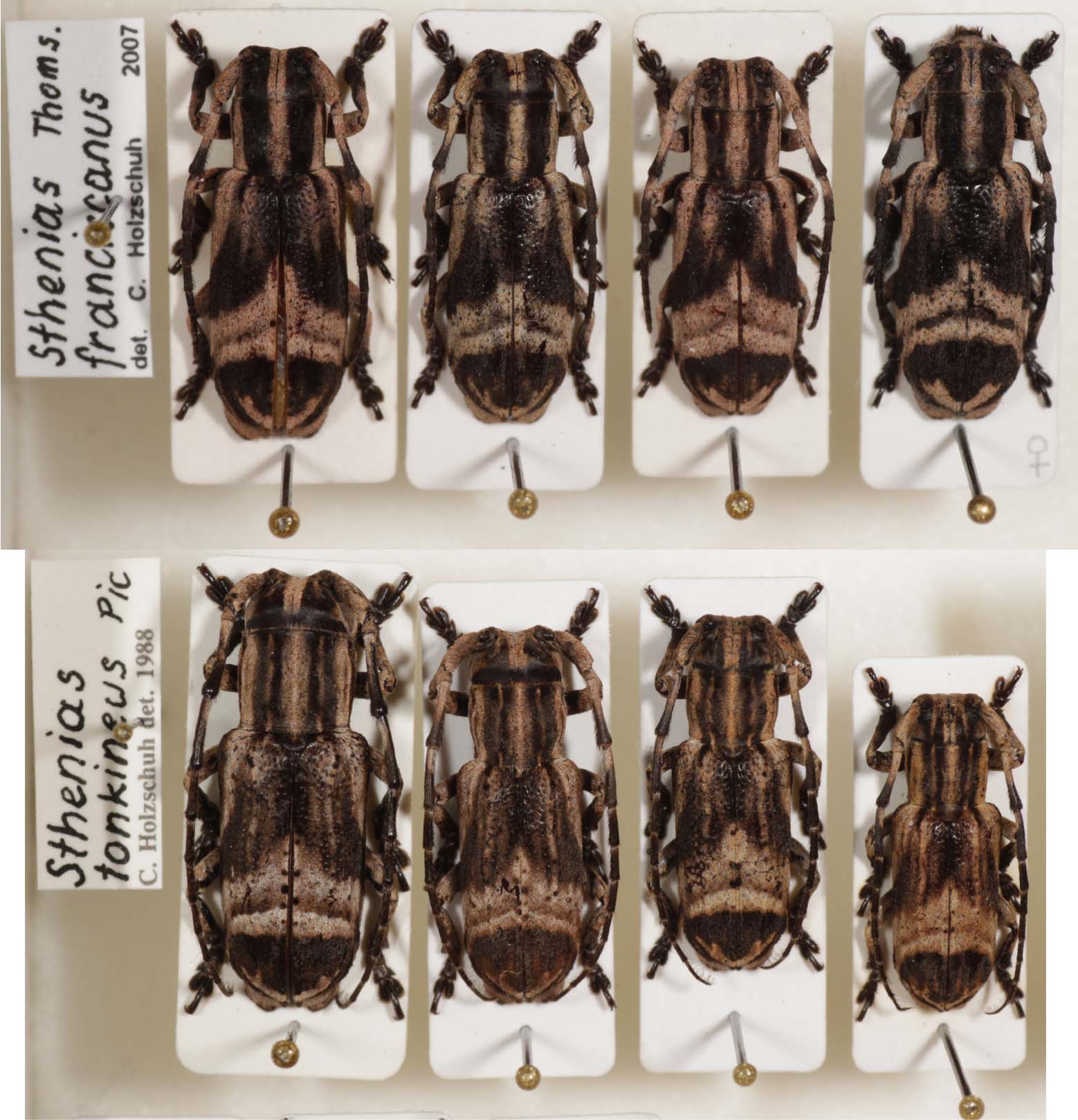
239.67 KB |
 |
|
|
Francesco
Forum Admin
    
Luxembourg
9653 Posts |
 Posted - 19/11/2018 : 08:20:16 Posted - 19/11/2018 : 08:20:16




|
Reading the descriptions, S. franciscanus shows entirely black antennae after antennomere V, while S. tonkineus shows annulate antennomeres... actually, all pattern is lighter.
Considering the distribution, S. tonkineus might be an Indochinese subspecies of S. franciscanus, but I doubt of the known distributions.
S. longeantennatus appears in the same part of the key, but its elytral pattern is similar to S. grisator (without white transversal band).
|
 |
|
|
Gerard
Scientific Collaborator
    
France
5473 Posts |
 Posted - 19/11/2018 : 17:35:36 Posted - 19/11/2018 : 17:35:36



|
Hello what is strange, is that the series seems to be for s. franciscanus than females and s. tonkineus than males.  |
 |
|
|
Gerard
Scientific Collaborator
    
France
5473 Posts |
 Posted - 19/11/2018 : 17:49:47 Posted - 19/11/2018 : 17:49:47



|
Andreas as tu d’autres bêtes dans tes séries ?
Je vois bien la différence entre les deux espèces. Voici deux bêtes pour compléter les séries de Andreas.

257.78 KB
Sthenias tonkineus Pic, 1925 femelle
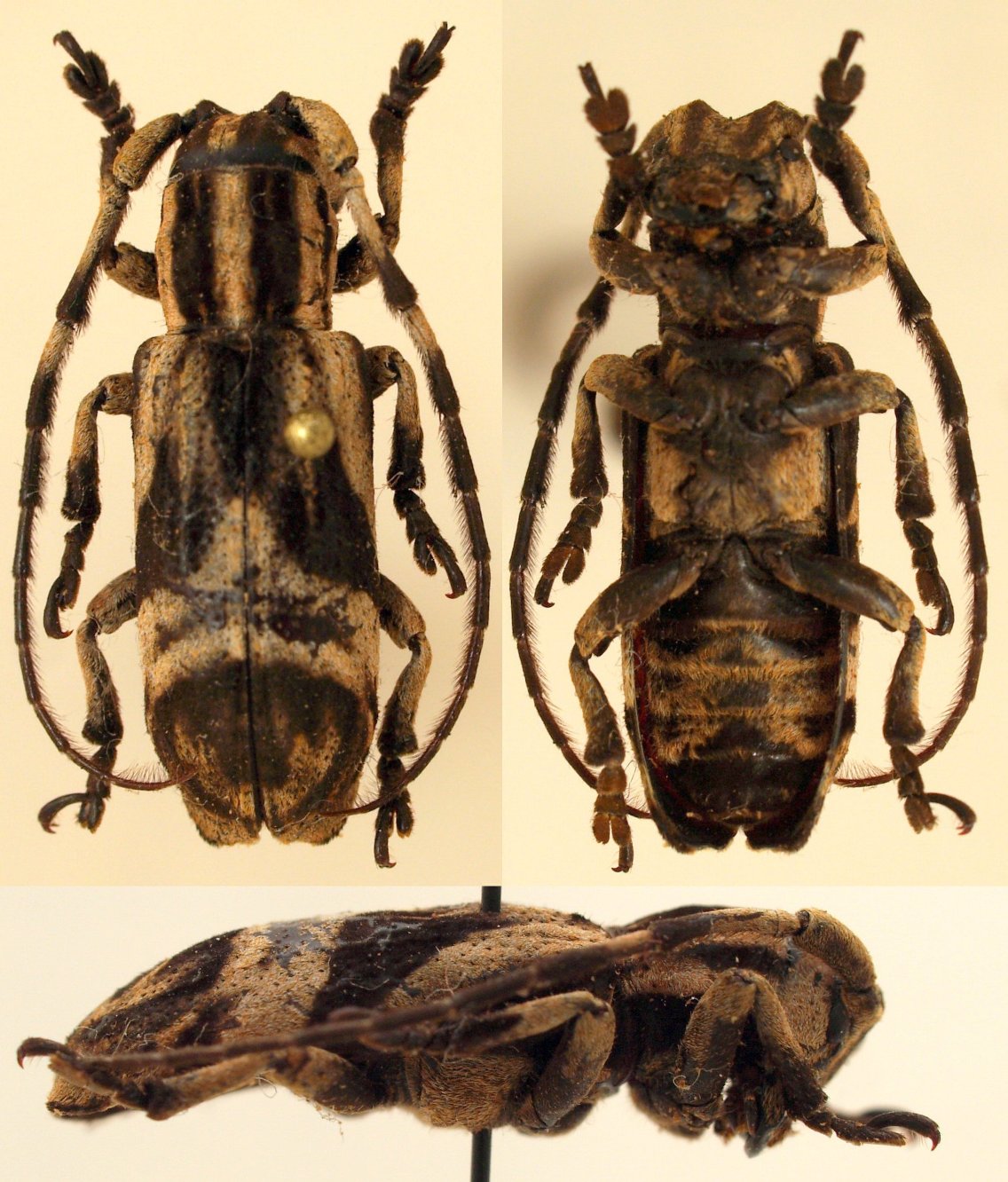
291.24 KB
Sthenias franciscanus Thomson, 1865 male |
 |
|
|
Xaurus
Member Macrodontia
    
Germany
2007 Posts |
 Posted - 20/11/2018 : 01:59:32 Posted - 20/11/2018 : 01:59:32



|
| I have only 2 males in coll, (Sikkim, Perak/Malaysia) both correspond the pictured males of S. fransiscanus, but the types are opposite concerning the length of antennae - maybe both are conspecific?? |
 |
|
|
Xavier
Scientific Collaborator
    
France
12547 Posts |
 Posted - 20/11/2018 : 07:08:03 Posted - 20/11/2018 : 07:08:03



|
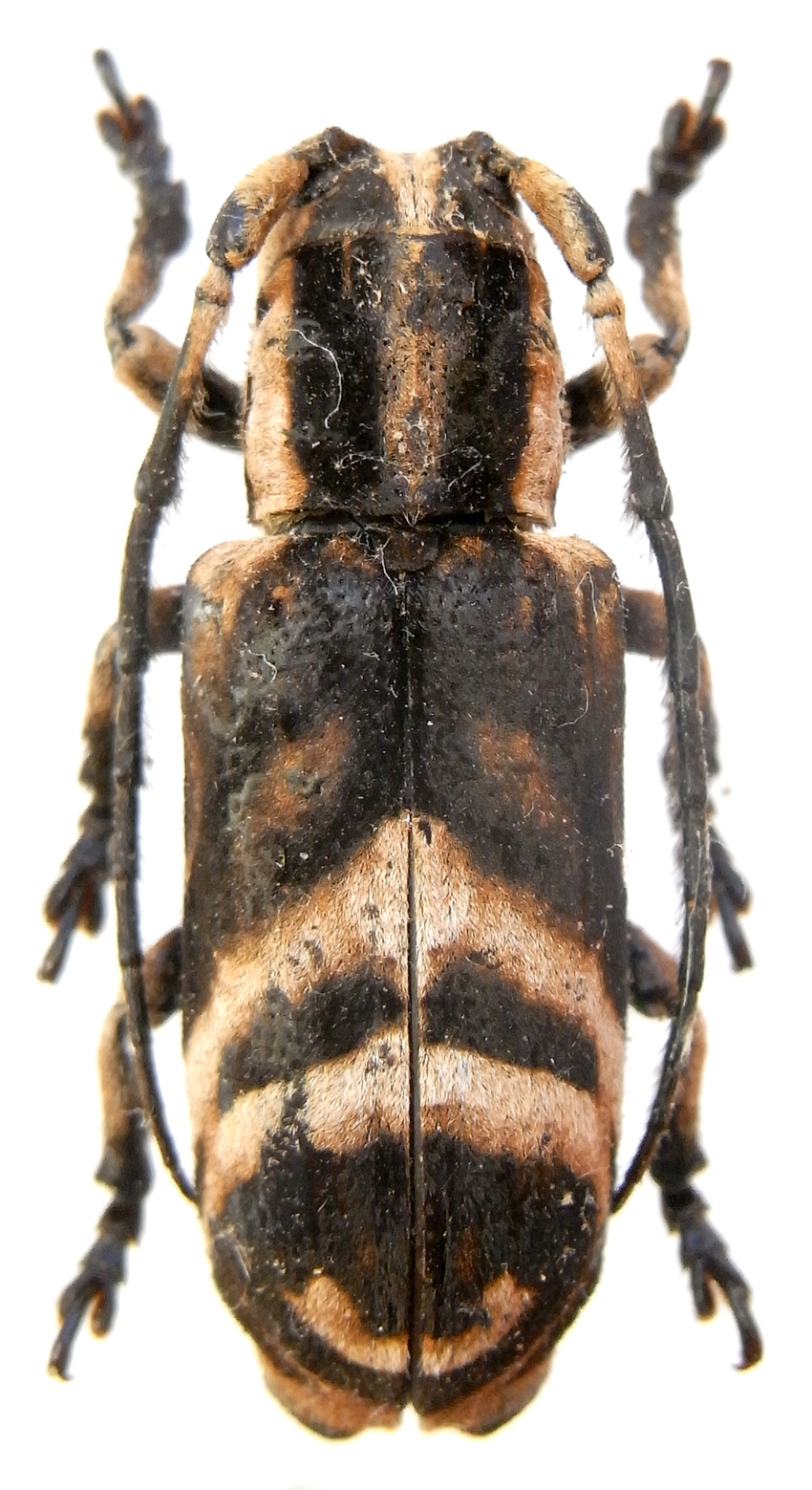
492.9 KB
from Sulawesi, it should be S. franciscanus female
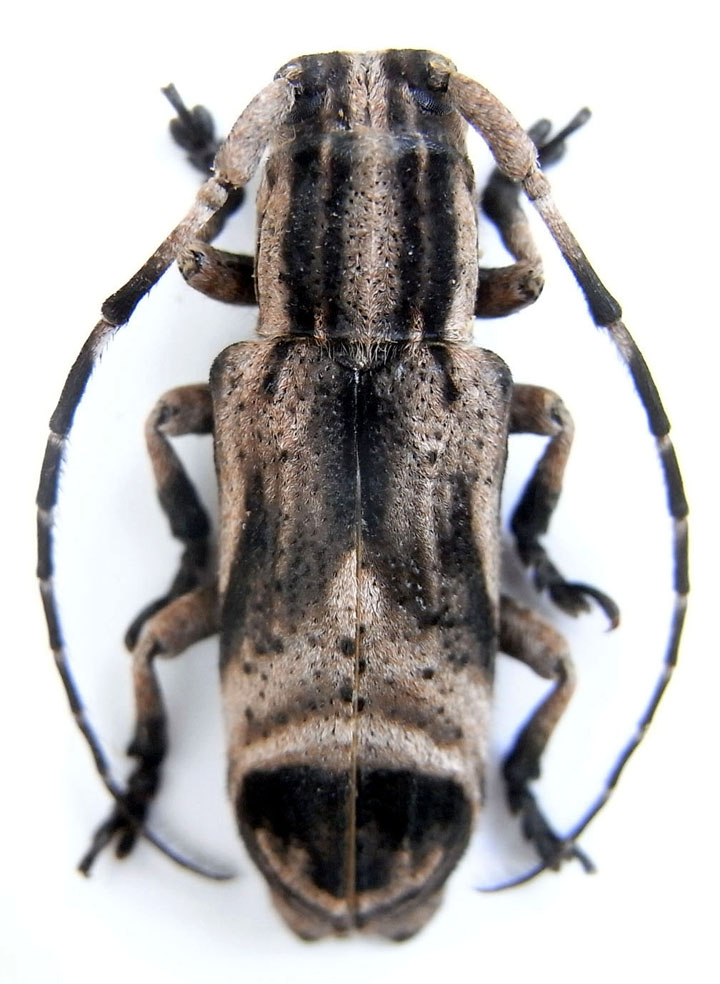
145.6 KB
from Laos, it should be S. tonkineus male |
 |
|
|
Xavier
Scientific Collaborator
    
France
12547 Posts |
 Posted - 20/11/2018 : 07:48:30 Posted - 20/11/2018 : 07:48:30



|
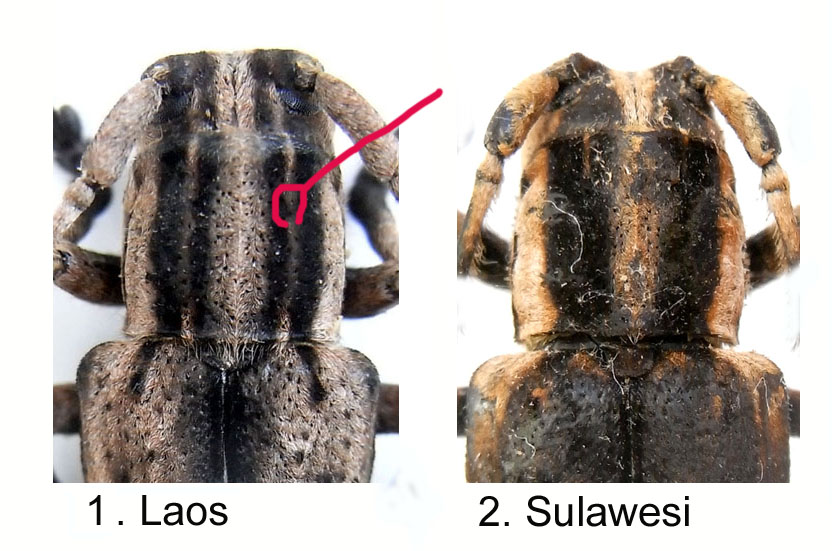
136.54 KB
This light line in the dark band seems present on all specimens from Laos, etc. Specimens from Indonesia are darker. |
 |
|
| |
 Topic Topic  |
|


